We offer an incredibly broad range of Sociology courses, probably more courses than any other 2-year institution in the nation. Currently, we have close to 30 exciting courses in our rotating curriculum. In addition to the classics of Sociology such as Introduction to Sociology, Deviance, Race & Ethnicity, and Relationships & Families, we offer courses with such wide-ranging topics as Sexualities, Sports, Religion, Food, Death & Dying, Gender & Masculinities, Popular Culture, Disabilities, and Children & Youth, among many more. We even offer courses that are considered somewhat ‘cutting-edge’ in our discipline, such as Intersections of Identities and Sociology of the Body. No matter your interests and no matter the field or career you decide to pursue, we believe that the things you can learn in a Sociology class will be useful to you in a practical way. If you will need to work with or understand people, Sociology can help. Take a look at what we have to offer below; we think you’ll find something of interest to you. All Sociology courses are five (5) credits.
If you’d like to know which courses we plan to offer in upcoming academic years, visit our Projected Annual Schedule. Please note that this schedule is tentative and subject to change.
We are one of few programs on campus that offers an Academic Concentration, which we believe can help students be more marketable while ‘shopping’ for a university or on the job market. An Academic Concentration is roughly comparable to a ‘minor’ at most four-year institutions. To learn more, visit Academic Concentration.
SOC& 101: Introduction to Sociology – 5 credits
What makes you, you? Are you free to choose your own destiny, or does society determine your path? Explore how our different identities impact our everyday lived experiences and develop useful ways to think about the world around you. Themes include power dynamics, culture, identities, deviance, stereotyping, and/or the social construction of knowledge.
What to Expect in This Class:
This course provides you with a broad introduction to the field of Sociology, exploring topics such as social inequality, power and privilege, social construction, and how social institutions (such as media, government, the economy, education, etc.) perpetuate hierarchies and inequity across lines of race, class, gender, disability and/or sexuality. This is a highly interactive class where you will learn by doing. You will be encouraged to begin observing and analyzing your own life, as well as the lives of those around you, by exploring the ways in which society and culture profoundly influences our everyday lives. Students who take this class often tell us that it changed their view of the world, empowering them to think differently about their own lives and the lives of others.
Sample Past Syllabi From This Class:
- Introduction to Sociology (online) Syllabus Fall 2020 w/Oriana Estrada [PDF]
- Introduction to Sociology (online) Syllabus Fall 2020 w/Nicholas Russ [PDF]
- Introduction to Sociology (hybrid) Syllabus Fall 2019 w/Denise Johnson[PDF]
- Introduction to Sociology (online) Syllabus Fall 2020 w/Denise Johnson[PDF]
- Introduction to Sociology (online) Syllabus Fall 2020 with Jennifer Lê[PDF]
- Introduction to Sociology (hybrid) Syllabus Winter 2020 with JenniferLê[PDF]
- Introduction to Sociology Syllabus Winter 2018 w/Sue Cox[PDF]
- Introduction to Sociology (hybrid) Syllabus Fall 2019 w/Sue Cox[PDF]
- Introduction to Sociology (online) Syllabus Spring 2020 w/Sue Cox[PDF]
- Introduction to Sociology (online) Syllabus Fall 2020 w/Eric Davis[PDF]
- Introduction to Sociology (online) Syllabus Fall 2020 w/Michael Woo[PDF]
- Introduction to Sociology Syllabus Winter 2015 (late start) w/Michael Woo[PDF]
- Introduction to Sociology (online) Syllabus Winter 2019 w/Sara Sutler-Cohen[PDF]
- Introduction to Sociology Syllabus Winter 2018 w/Croix Saffin[PDF]
- Introduction to Sociology (online) Syllabus Fall 2020 w/Croix Saffin[PDF]
- Introduction to Sociology (hybrid) Syllabus w/Croix Saffin[PDF]
SOC 105: Blacks In America – 5 credits
What does it mean to be Black in America? Explore the social and cul tural background of Blacks in America through the lens of sociology, and analyze the ways in which social institutions have been transformed by these contributions. Through research and writing, themes include music and popular culture, activism, politics, and/or social change.
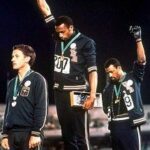 What to Expect in This Class:
What to Expect in This Class:
Black history is American history. This course examines the central role Blacks have played in American society. The overarching question of this class is: how have Blacks become who they are as a people? This course has an historical component (but certainly a sociological history!), as it examines the impact of long-term institutional and individual racism on Blacks in America, such as in schooling, housing, poverty, criminal justice, and politics. You will learn how racial identity and culture develops within those contexts. You will also explore Black social and political resistance in the form of music, the arts, athletics, and culture. You’ll learn about Black political activism and mobilization, such as the Civil Rights Movement and modern Black nationalism. Black social movements have transformed American society, even providing models for other social movements to follow. And other elements of Black culture – music, athletics, art – have had worldwide, lasting impacts as well. This engaging course examines the fundamental ways in which the “Black experience” is the quintessential “American experience.” Students of all races and ethnicities enroll in this class, a class that has a lot of film, discussion, and important dialogue, and they tell us that their view of the world shifts after taking this course.
Sample Past Syllabi From This Class:
Blacks in America Syllabus Spring 2014 w/Eric Davis[PDF]
SOC 122: Activism and Social Change – 5 credits
Can one person make a difference? What does making a difference look like? Using literature, film, music, and news media to look at past and present social movements, examine what makes us engage in acts of political protest, and critically analyze why some resistance efforts are successful and others are not.
 What to Expect in This Class:
What to Expect in This Class:
This course provides historic and contemporary perspectives on social change, activism, and resistance. You will be exposed to an overview of social movements, and you’ll examine examples of activist voices in television, film, the arts, and/or popular music. Movements such as the Civil Rights Movement, Women’s Movement, Environmental Movement, Gay and Lesbian Movement, and American Indian Movement, among others, may be covered. This course pays close attention to the ways in which activism is represented in our culture, and it examines a variety of methods used to enact social change. Course concepts and themes will be demonstrated through lectures, discussions, readings, multi-media presentations, and possible guest lectures. You may be required to engage in activism of your choosing, depending on the instructor.
SOC 150: The Social Lives of Children and Youth – 5 credits
What are the challenges of being a young person in American society, and how do young people negotiate those challenges? Investigate the experiences of youth, and learn to apply sociological thinking to everyday life. Themes include youth subcultures, identity development, friendships and dating, and social problems of youth like drug use and eating disorders.
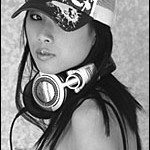 What to Expect in This Class:
What to Expect in This Class:
This is an introductory-level course that applies fundamental sociological principles and concepts to the experiences of being a young person in America. Students will focus primarily on the following sociological questions: How do we become who we are? What is the role of our families, our schools and friends, and the media in shaping us? Why do children’s lives differ from one another? What are the challenges of being a young person, and how do young people negotiate those challenges? In what ways do youth exert their power? The simple act of being a young person in an adult-dominated world can be a huge challenge. How does a child become a unique human being when those around her are almost constantly telling her how to act and what to think? How can a child have any say at all when the society grants him little power? Throughout the quarter, you will examine the tension between being a young person who wants to assert control over his/her own life and living in a society that won’t quite allow it. Although we have noted that oftentimes students who enroll in this course are nannies, coaches, future teachers, and parents, please know that this is not a parenting class. In light of this, we have had many students in this class who have told us that it changed the way they thought about and treated young people, including their own children. Nevertheless, we think this is a very useful course for anyone who will be interacting with kids and youth.
Sample Past Syllabi From This Class:
Children and Youth Syllabus (online) Fall 2020 w/Croix Saffin[PDF]
Children and Youth Syllabus Fall 2017 w/Jennifer Lê[PDF]
SOC& 201: Social Problems – 5 credits
Do you know a social problem when you see one? Are you a part of the solution or part of the problem? Investigate contemporary social issues such as homelessness, violence and war, racism, education in America, and/or the criminal justice system and learn how individuals and groups can combat major problems facing us today.
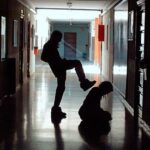 What to Expect in This Class:
What to Expect in This Class:
Violence and bullying, crime, racism, poverty, sexism, illness, teenage pregnancy, terrorism, and war – these are just a few of the social problems that affect everyone, regardless of our positions in American society. Some of us, for example, may face unfair treatment due to our races, religions, or sexual orientations. Some people battle drug or alcohol addictions. Some struggle with divorce or other family-related challenges. Some lives are directly touched by crime, violence, war, or terrorism, and still others are indirectly influenced by these acts. For better or worse, social problems are a characteristic of contemporary societies; we all must deal with them in one way or another on a nearly daily basis – even if we are not consciously aware. In this dynamic, thought-provoking class, students will explore social problems using a sociological perspective. You will learn what exactly makes a social problem “social,” and you will explore how sociologists identify and study social problems. Finally, you will discover how the sociological approach differs from everyday, “common sense” explanations. Each quarter, your instructor will focus on specific social problems facing Americans today, discussing the causes of and solutions to them. This course is designed for the beginning sociology student and thus serves as a broad introduction to the discipline of sociology.
Sample Past Syllabi From This Class:
Social Problems Winter 2015 w/ Sara Sutler-Cohen[PDF]
Social Problems Winter 2018 w/Sue Cox[PDF]
Social Problems (hybrid) Syllabus Winter 2020 w/Sue Cox[PDF]
SOC 210: Popular Culture – 5 credits
What makes popular culture ‘popular’ and who decides for us? Wrestle with the notion of whether popular culture defines society, or if society defines popular culture; by studying television, music, film, and more. Themes include audience reception, network societies, and popular culture on a global scale.
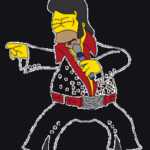 What to Expect in This Class:
What to Expect in This Class:
In recent decades, popular culture has become increasingly central to social life in America. In fact, popular culture plays a vital role in shaping not only how we think about ourselves and each other, but also about the larger world around us. In this class, you will learn how to analyze popular culture from a sociological perspective, so you will watch and consume a LOT of popular culture over the quarter. Some of the key questions examined are: What makes culture “popular?” Who are the creators of popular culture? How does popular culture impact our lives? What can we learn about who we are as a people by studying popular culture?
By the end of the quarter, you should be able to critically analyze popular culture by placing it within a broader social context. You might learn how to “read” popular culture much like a text. This course touches upon a wide range of popular culture “texts,” from commodities and advertisements to movies and television to music and fashion. Students who take this class tell us that they think about popular culture in a very different way as a result of what they’ve learned.
SOC 215: Television, Culture and Society – 5 credits
How do we watch TV in the 21st century? Do we need a TV to watch TV? Study how television affects knowledge building, ways of thinking, and core elements of our social lives. Themes include television culture, how to understand news media, and the social history of television.
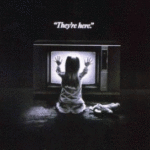 What to Expect in This Class:
What to Expect in This Class:
Undoubtedly, television has profoundly impacted contemporary American society. Television watching has transformed our social relationships, and its programming has shaped how we think about much of the world. This course examines the sociohistorical development of the television by asking questions such as: are the shows on TV a reflection of who we are, or do they create who we are? What role does the television play in our consumer economy? How has the content of television changed over the decades, and how have these changes impacted our society? In this class, you should come prepared to watch and analyze a LOT of television. But more importantly, you should come prepared to watch television in a new, thought-provoking way. You will talk and write about what you’ve seen, and you’ll likely never look at television the same way again.
SOC 222: Sports in Society – 5 credits
Are sports an avenue for personal empowerment or a path to exploitation? What do sports mean in American society? Study the ways in which sports are embedded in social systems such as the economy, government, and education. Themes include race, class and gender issues, crime and violence in sport, and the economic impact of sport.
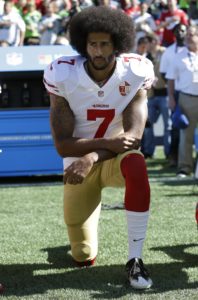
What to Expect in This Class:
This class explores the deep social complexities of sports and athletics in America. What role do race, class, gender, and sexuality have on our playing fields and in our locker rooms? How are major corporations and organizations turning sports into a capitalist money-making machine? In what ways have sports long been an outlet for political protest and social causes? What role in our culture do sports play? In this interactive course, students will engage with a wide range of materials – readings, films, lectures, websites, etc. – as they grapple with the very important and influential world of sports.
SOC 230: Education in the 21st Century – 5 credits
What role do education and schools play in society? How do schools both reinforce and challenge prevailing social practices? Untangle such complex issues as gender differences in education, racial and ethnic segregation, and affirmative action, and learn more about current political controversies about schools.
 What to Expect in This Class:
What to Expect in This Class:
Examine the crucial roles education and schools play in society. Why go to school? How are private schools different from public schools? Why is there such a huge gap in quality in our public schools? How do schools both encourage and discourage social change? How can we improve our schools? This class untangles such complex issues as gender differences in education, school segregation, affirmative action, the economics of schooling, school reform, political controversies about schools, and the culture of schools in America. This class is great for anyone interested in the state of schooling in America – from parents to activists to future teachers.
Sample Syllabi:
Education in the 21st Century (online) Syllabus Fall 2020 w/Eric Davis[PDF]
SOC 240: Identity, Self, and Social Interaction – 5 credits
How do we become who we are? How are our Selves shaped in a busy, ever-changing world? In this introduction to social psychology from a sociological perspective, topics focus on identity development and the Self in all social institutions including family, social networks, and cultural environments. Students who completed either PSYC 240 or SOC 240 before Summer Quarter 2013 may not take this class for credit.
 What to Expect in This Class:
What to Expect in This Class:
(This course was formerly called “Social Psychology.” This class is an introduction to sociological social psychology.) Ever wonder how people arrive at their decisions and how those decisions impact people’s lives? One of the fundamental elements of this course is to assist you to think about the dynamic interplay between individuals and society. Social psychology provides explanations of the complex relationship between how people live, why people live in a particular way, and what difference culture and group membership has on people, institutions, and systems. This course is designed to assist students with their analytical and critical thinking skills. You’ll examine the sociological imagination, and you’ll explore the structure of society and the relationships of individuals to these structures. After taking this class, you will better understand your own behavior as well as the behaviors of others.
Sample Past Syllabi From This Class:
Identity, Self and Social Interaction Syllabus Winter 2016 w/Jennifer Lê[PDF]
SOC 244: Medical Sociology – 5 credits
What is medical sociology? This course will examine the major frameworks and sociological understandings of health and illness. Through a social and cultural lens, we will examine hospital and health care delivery institutions. We will ask probing questions about the distribution of health, illness, death, and longevity across socioeconomic strata and population subgroups. How does identification with certain subgroups of race, ethnicity, gender, sexuality status, class position, and age impact health and illness outcomes? In other words, how and why does the medical system provide better outcomes for some groups and fail other groups?
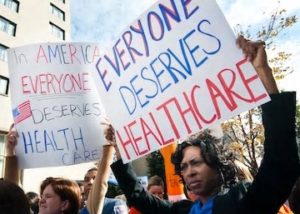 What to Expect in This Class:
What to Expect in This Class:
What is medical sociology? This course will examine the major frameworks and sociological understandings of health and illness. Through a social and cultural lens, we will examine hospital and health care delivery institutions. We will ask probing questions about the distribution of health, illness, death, and longevity across socioeconomic strata and population subgroups. How does identification with certain subgroups of race, ethnicity, gender, sexuality status, class position, and age impact health and illness outcomes? In other words, how and why does the medical system provide better outcomes for some groups and fail other groups?
Sample Syllabi:
Medical Sociology (online) Syllabus Fall 2020 w/Michael Woo[PDF]
SOC 246: Religion and Our Social World – 5 credits
What is religion? What power does religion have in our social world? What¿s the difference between spirituality and religion? Explore the sociological phenomenon of religion and religious life. Themes include various beliefs and practices, cults, popular culture, death and dying, the political and economic impacts of religion, and/or social change.
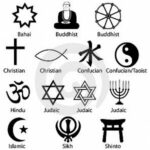 What to Expect in This Class:
What to Expect in This Class:
What role does religion play in modern American society? How “religious” are we as a people? What is the difference between “religion” and “spirituality?” Explore these questions, and more, as you critically engage the relationship religion has with American Society. This course goes far beyond a “who believes what” approach. Expect to examine the relationship between religious beliefs and our major social institutions, such as government, the economy, and schools. You may also study cults, popular culture, death and dying, and/or social change. Some instructors require students to attend a religious event or service over the course of the quarter, and to write/reflect on what they’ve observed. Either way, this is a very discussion-provoking course that oftentimes challenges students’ misperceptions about the roles of religion in contemporary society.
Sample Past Syllabi From This Class:
Religion and Our Social World Syllabus Winter 2015 w/Jennifer Lè[PDF]
Religion and Our Social World Syllabus Spring 2019 w/Sue Cox[PDF]
SOC 248: Public Health Around the Globe – 5 credits
What is Public Health, and how does it differ from Health Care? Investigate the role of the American Public Health system and how it impacts different groups across racial, class, and gender lines. Themes may include the social history of Public Health, needle exchange programs, and germ panic in America.
 What to Expect in This Class:
What to Expect in This Class:
Swine flu. Mad Cow. HIV/AIDS. Teen pregnancy. Every few years, a new public health issue seems to capture the interest of Americans. What exactly is Public Health, and how does it differ from Health Care? Investigate the role of the American Public Health system and learn how it impacts different groups across racial, class, and gender lines. Themes may include the social history of Public Health, needle exchange programs, and germ panic in America.
SOC 249: Disability in Society – 5 credits
What is ‘disability?’ What does it mean to be a person living with a disability? Explore how history and culture shape the experiences of people with disabilities. Topics include eugenics, popular representations like the ‘freak show,’ the Disability Rights Movement, and the relationship of disability, gender, race, and class.
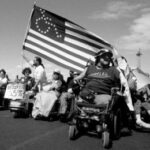 What to Expect in This Class:
What to Expect in This Class:
What is disability? How have history, society, and culture dealt with disability as both an identity and a category of diversity? After unpacking the definition of disability, students will look at different forms of historical oppression of the disabled such as eugenics and the freak show. You will then learn the difference between the ‘medical model’ and the ‘social model’ of disability, and this shift in perspective may just transform your view of disabled people. Students will also seek to understand some important sociological texts and personal narratives dealing with disability as a social phenomenon. You will also examine the hugely important Disability Rights Movement, from the enactment of the Americans with Disabilities Act to the development of Universal Design. Not least, you will learn about ‘intersectionality’; what happens when disability intersects with race, class, gender, and sexuality? This course will include compelling, powerful documentaries and video clips pertaining to disability in society, and students will engage in meaningful discussion and writing. This is a cutting-edge, fast-growing, and exciting area of sociology.
SOC 250: Growing Up and Older in America – 5 credits
What does it mean to be young, middle-aged, or elderly in American society? Examine coming-of-age and transitions in life from a sociological perspective. Themes may include rites of passage, age discrimination, work and retirement, sexuality and relationships, health, illness, and caregiving.
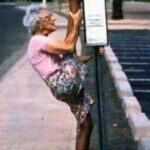 What to Expect in This Class:
What to Expect in This Class:
Study how the experience of aging affects individuals, families, and society. What does it mean to be young, middle-aged, or elderly in American society? What are our rites of passage, and how have they changed over time? How does your race, gender, and social class affect your experience of aging? What impact will our aging population have on the remainder of society, including our economy? Examine the social transitions of life from a sociological perspective. Themes may include rites of passage, age discrimination, work and retirement, sexuality and relationships, health, illness and caregiving.
SOC 252: Work and the Culture of Employment – 5 credits
Got a job? Need a job? Don’t want a job? What does it mean to be a worker? Understand the complexities of workers, poverty, and social reform. See yourself as a worker, and understand what that may mean. Topics may include Unions, the class system in America, and the idea of a ‘good job.’
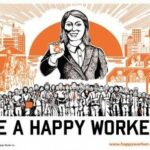 What to Expect in This Class:
What to Expect in This Class:
Explore the sociohistorical meaning of the phrase “Get a Job!” Understand the complexities of workers, poverty, and social reform. See yourself as a worker, and critically understand what that may mean in America. Topics may include Unions, the class system in America, and the idea of a “good job.”
SOC 253: Men and Masculinities – 5 credits
What does it mean to be a ‘real man’ in contemporary society? What are the challenges of living up to the ideals of manhood? How are women impacted by men’s lives? Investigate the meanings of ‘masculinity’ and explore themes such as athletics and sports, male body image, pornography, alcohol use, fatherhood, military, and male bonding.
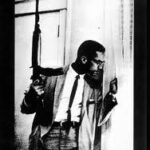 What to Expect in This Class:
What to Expect in This Class:
This course takes a more-focused look at gender by studying masculinities in depth. Explore the social construction of masculinities and men’s lives in conjunction with analyses of race, class, gender, and sexuality. Masculinities, in its various forms, shapes the lives of both women and men, and this course will examine the construction, reproduction, and impact of masculinities on the institutions of education, work, religion, sports, family, media, and the military, to name a few. This course will interrogate how masculinities shape individual lives, groups, organizations, and institutions, and it will analyze the ways in which power functions within these cultural formations. This course involves many films and provocative discussions, particularly since masculinity is so rarely discussed in our culture. Oftentimes, we’ve noticed students in this class saying things like, “I’ve never thought of that before, but you’re right!”
Sample Past Syllabi From This Class:
Men & Masculinities Syllabus Spring 2018 w/Croix Saffin[PDF]
SOC 254: Gender in the Social World – 5 credits
Are you born a ‘man’ or ‘woman,’ or does society make us ‘men’ and ‘women?’ Examine the ways in which gender organizes social life and shapes the distribution of power in society. Themes may include media stereotyping, gender roles, sex segregation in the workforce, sexual politics, and the experiences of women and men in families.
 What to Expect in This Class:
What to Expect in This Class:
This is a personally transformational course if we’ve ever seen one! What does it mean to be a “man” or a “woman?” Is one born a “man” or “woman,” or does society make “men” and “women?” This course deeply explores our complex social ideas about masculinity and femininity. You will explore the ways in which gender organizes our lives and shapes the distribution of power and privilege in contemporary society. You will also examine how gender influences our everyday interactions with others and how social institutions depend upon and perpetuate gender differences. This class examines the small gendered things we all do everyday as well as gendered institutions (such as the economy and mass media). Students frequently tell us that, after taking this class, they can’t look at the world the same way again. You’ll learn that social and cultural ideas about gender are embedded in almost everything that we do. You’ll reflect on the course material, and you’ll apply it to your own life. Come prepared to watch films, participate in activities, discuss gender in your own life, and dialogue on important topics.
Sample Past Syllabi From This Class:
Gender in the Social World Winter 2015 w/Denise Johnson[PDF]
Gender in the Social World (online) Syllabus Summer 2018 with Denise Johnson[PDF]
SOC 255: Dating, Relationships, and Families – 5 credits
How have courtship and dating changed? What does it mean to be a ‘family’? Is ‘the family’ falling apart? Explore changes in the culture and structure of families, and analyze how families play a central role in American life. Themes include single parenting, new family structures, cohabitation, marriage and divorce, and/or courtship and dating.
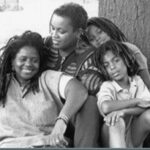 What to Expect in This Class:
What to Expect in This Class:
Families are fascinating. They are among the most dramatic social relationships in the world, as they can lead to both sheer joy and extreme pain. We might be thrilled to date, fall in love, or have children, but we may also experience deep sorrow from abuse, separation or divorce, and the death of a loved one. Although the experiences of families are often mundane (imagine the daily routines of household chores, for example), they can also sometimes be equally thrilling (imagine having your first child). Indeed, families are a paradox in multiple ways.
For most of us, the family was central to our personal development as human beings. In our families – no matter what our families “looked” like and no matter the struggles we faced within them – we learned to become who we are. Likewise, families are central in the structure of societies. Families nurture, prepare, and train workers for the economy. Families also teach us culture and values, allowing the society to survive. Families are so important, in fact, that many scholars argue that individuals and societies would not exist without them. In this class, you will examine several aspects of the family using a sociological perspective. You’ll study the crucial interaction between families and other social institutions (like the economy and government). You’ll explore the social patterns and characteristics of families in America. You’ll learn about diversity within families (e.g. no two children come from the same family), and you’ll study a wide range of family forms. Our overarching goal for the quarter is to place families in a social context. Indeed, families do not exist independently of their societies. Please note that this is not a “how to have a good relationship” class, although students do tell us that the research we talk about in this class does give them many good ideas!
Sample Past Syllabi From This Class:
Dating, Relationships, and Families Syllabus Winter 2018 w/Denise Johnson[PDF]
Dating, Relationships, and Families Syllabus Winter 2016 w/Sue Cox[PDF]
Dating, Relationships, and Families (online) Syllabus Summer 2020 w/Sue Cox[PDF]
SOC 256: Sex and Sexualities – 5 credits
Do men and women think differently about sex? Does pornography impact how we have sex? Is prostitution harmful to society? Investigate contemporary sexual behaviors from a sociological perspective and examine how culture impacts sexual practices and identities. Themes may include the sex industry, the sexual self, attitudes about the body, and/or sex in popular culture.
 What to Expect in This Class:
What to Expect in This Class:
This is not a “how to have sex” class, and it’s not a sex ed course; this is a course that studies a wide range of sexual phenomena from a sociological perspective.
We live in a society where sex is everywhere – on television and radio, in movies and the arts, on bus stop billboards and magazine advertisements. We talk about sex at home, in school, on Capitol Hill, and at work. We call people studs, sluts, pimps, whores, and prudes. Sex is all around us, touching nearly every aspect of our lives – yet we rarely take the time to study it. In fact, we are often misinformed about sex. This course is designed to untangle sexual myths from sexual realities.
Obviously, this class is about sex. But it’s not just about sex. It is also about gender, culture, and deviance. It is about the body. It’s about power, politics, inequality, and social change. Sociologists know that sex does not happen in a vacuum. To the contrary, sex is tied up with history, culture, politics, and power. This class explores these connections in depth. The major goal is to understand how the larger social environment fundamentally shapes our intimate, private sex lives for better or worse. You will probably look at sex and sexuality in a very different way after taking this class. Please note that this course covers sexual topics that are sometimes quite explicit; however, whenever sex is discussed in this course, it is always framed within an analytical/academic context.
Sample Past Syllabi From This Class:
Sexualities (online) Syllabus Fall 2020 w/Denise Johnson[PDF]
Sexualities Syllabus Spring 2017 w/Jennifer Lê[PDF]
Sexualities (online) Syllabus Spring 2020 with Jennifer Lê[PDF]
Sexualities Syllabus Fall 2018 w/Croix Saffin[PDF]
SOC 258: Sociology of the Body – 5 credits
Examine how cultures think about the body. Explore how society shapes bodies and how humans ‘perform’ individual and group identities through bodies and bodily manipulation. Themes may include tattooing and body piercing, beauty standards and plastic surgery, transgenderism, race/ethnicity, and disability.
 What to Expect in This Class:
What to Expect in This Class:
How do societies and cultures categorize and group people according to their bodies? What impact does your body have on your social experiences? This course covers a burgeoning subfield within Sociology by exploring the ways in which cultural ideas about the body fundamentally drive social arrangements. The course begins by looking at the exciting theoretical foundations of “embodiment.” How are ideas about freedom, hatred, and oppression, for example, related to bodies? How do we discriminate, privilege, and oppress based on bodies? The class then examines how our identities – male/female, Black/White/Asian, gay/straight, disabled or not – are rooted in bodies. How do we attempt to convey who we are by controlling and/or manipulating our bodies? Why do we adorn our bodies, pierce and tattoo our bodies, and surgically alter our bodies? This is an active learning class, where students explore a wide range of bodily phenomena, from plastic surgery and transsexuality to eating disorders and the diet industry to tattooing and scarification to disability and ableism. Please know that this course discusses some topics that are sensitive to students.
Sample Past Syllabi From This Class:
Sociology of the Body Syllabus Spring 2018 w/Croix Saffin[PDF]
Sociology of the Body (online) Syllabus Spring 2019 w/Sara Sutler-Cohen[PDF]
Sociology of the Body (online) Syllabus Spring 2020 w/Denise Johnson[PDF]
SOC 260: Death and Dying – 5 credits
What happens to your physical body when you die? Who decides what happens? Critically examine the social history and the business of death and dying in America as it has changed over time. Topics may include death in popular culture, the business of death, and the employment that death provides.
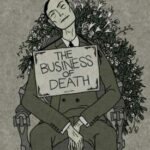 What to Expect in This Class:
What to Expect in This Class:
In this is deeply profound class, examine the process and experience of “death” as well as cultural understandings of “dying.” You will learn about the business and economics of death (i.e. the money that’s made surrounding death), religious beliefs about death, popular culture representations of death and dying, and the impact of death and illness on survivors. This class may very well be one of the highlights of your educational experiences, as it deals with topics that all of us will face at some point or another.
Sample Past Syllabi From This Class:
Death & Dying (online) Syllabus Winter 2020 w/Sara Sutler-Cohen[PDF]
SOC 262: Sociology of Race and Ethnicity – 5 credits
Examine the complexities of race and ethnicity in America. Themes include current events, representations in popular culture, the development of a racial self, and/or the interaction of race and social class.
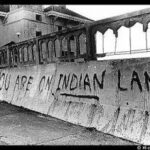 What to Expect in This Class:
What to Expect in This Class:
Race and ethnicity remain hot topics in American society. Good friends, even family members, often disagree about racial issues. Are we in a “post-race” America? Is there a level playing field? Do we still need affirmative action? What does it mean for America that we elected our first Black President? This course begins by examining how race is socially constructed, first by exploring how racial categories have changed over time then by discussing the ways in which these definitions have served the interests of powerful groups. Using pop culture, visual images and archives, and multimedia, you will also explore contemporary representations of race, and analyze how these images intersect with gender, class, and sexuality. This is another fundamentally transformational class, as students frequently tell us that their outlook shifted dramatically after taking this course.
Sample Past Syllabi From This Class:
Race and Ethnicity Fall 2017 w/Croix Saffin[PDF]
Race and Ethnicity Syllabus Fall 2019 with Denise Johnson[PDF]
Race and Ethnicity (online) Syllabus Summer 2020 with Denise Johnson[PDF]
Race and Ethnicity (online) Syllabus Fall 2020 with Jennifer Lê[PDF]
SOC 264: Intersections of Inequality and Identity – 5 credits
How is one kind of inequality connected to another? Can we understand race without also understanding gender? Can someone simultaneously be both advantaged and disadvantaged in society? Explore how social experiences are impacted by multiple forms of inequality. Themes may include poverty, socialization, domestic violence, media representations, stereotypes, prisons, AIDS/HIV, and/or drug addiction.
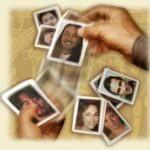 What to Expect in This Class:
What to Expect in This Class:
Decades of research have shown the degree of social inequality in our society. We live in a society that – for better or for worse – organizes people according to race, class, and gender. Until the 1990s, most sociologists talked about inequality along just one variable or identity – such as race or gender. But in recent years, scholars have attempted to understand the relationship between multiple identities. For example, upon first glance we might conclude that there are certain social roles women are supposed to play, and there are different social roles and expectations for men. But it’s more complicated than that, however, as not all women have the same social expectations placed upon them, nor do all men. Some women, by virtue of their social class, are likely expected to work for most of their lives (maybe waiting tables, or doing bookkeeping or housekeeping), while other women are socially discouraged from working (perhaps to raise kids, attend college, frequent social events, or raise monies for charity). So the reality is that we can’t talk about the effects of gender without also talking about how those effects differ by class and by race and also by sexual orientation.
Thus, in this course students will study race, class, and gender not as separate entities, but as entities that intersect and interact with one another. Students will examine the intersections, interconnections, tensions, and harmonies of race, class, gender, and sexuality as systems of privilege and oppression. Students will explore how a given human being can be advantaged and disadvantaged simultaneously. This “intersectional” approach is relatively new, and it is at the forefront of a modern and more-complex way of thinking about society and about human beings.
Sample Past Syllabi From This Class:
Intersections Syllabus Spring 2015 w/Croix Saffin[PDF]
Intersections of Inequality (online) Syllabus Spring 2019 w/Croix Saffin[PDF]
SOC 265: City Life and Culture – 5 credits
What¿s the difference between The City and The Country? What do Suburbs have to do with The City? How are cities imagined? Investigate the structures and activities of city life with themes like urban development, decay, renewal, art and architecture, wealth and poverty, growth of the suburbs and/or overall transformation of the City.
 What to Expect in This Class:
What to Expect in This Class:
This course takes the Urban Center as its focus in order to better understand the many complexities of the culture of city life over time in America. The City will also be looked upon as a metaphor for social change, public life, conflict, order, and the history in which we create and engage. The city is a social, cultural, historical, and political phenomenon that changes as quickly as societies may “naturally” shift. We might look at urban renewal, architecture, immigrant diasporic identities, the culture of city labor, gentrification, suburbanization, the arts, and urban sprawl, paying close attention to wealth, poverty, crime, homelessness, family, and class. Course concepts will be demonstrated through lectures, readings, multi-media presentations, and library research. **PLEASE NOTE: You may be required to make weekly visits to a city while enrolled in this class.**
SOC 268: You Are What You Eat: Food In Society – 5 credits
From where does your food come? Why and when do you eat what you do? Critically analyze the social history of food production and consumption in America over time. Themes include the changing rhythms of food development, understanding diet and nutrition from a cultural perspective, and food in pop culture.
 What to Expect in This Class:
What to Expect in This Class:
Most Americans know little about the food we eat. Perhaps this morning, as you opened your favorite box of cereal and read the label, you were taken aback at the number of unrecognizable ingredients. You might have wondered, “What is all of this stuff? Is it good for me? Why am I eating things I don’t recognize?”’ Those are certainly important questions, but if we think even more deeply, perhaps about the more hidden, social aspects of food, even more questions arise. “Why is the vast majority of our society’s food processed and full of additives? Since it hasn’t always been this way, how did we get to this point? Where do all these ingredients come from? Who are the people who produced my cereal…the farmers, the food chemists, the packers? How are their lives similar to or different from mine? Why is it relatively easy for me to have access to breakfast, whereas others are going hungry?” Indeed, there are many, many social aspects to food production, distribution, and consumption, and this course examines all of these phenomena from a sociological perspective. This means that the class will be asking different kinds of questions about food than you may at first be accustomed to. For example, this class will attempt to answer the following: Why do we eat what we do? What does the food we eat reveal about who we are as a people? From where does our food come? Which people produce our food? What kind of social system are we participating in when we eat cereal, a hamburger, a hot dog, or a salad? Why do some societies have an overabundance of food and others not enough? Why is food often a class issue? An ethnic issue? A gender issue? Why do Americans sometimes have problematic relationships with food, leading to health problems, like obesity and eating disorders? Indeed, food has many sociological “layers.” The fact of the matter is that food connects us to a complex web of cultures and peoples around the globe – even though most of us are not consciously aware of this connection. The overarching goal of this class, then, is to increase your awareness and knowledge by exploring how the contemporary production, distribution, and consumption of food reflects social and economic power relations between peoples. Drinking a cup of coffee may never be the same again.
Please note that, as sociology instructors, we do our best to integrate “active learning” into all of our classes. In the case of this Food course, students may be required to do something like keep a food journal, visit a variety of restaurants, and/or participate in a potluck. These activities vary depending on the instructor and course materials.
Sample Past Syllabi From This Class:
You Are What You Eat Syllabus Spring 2017 w/Sue Cox[PDF]
SOC 270: Deviance in Society – 5 credits
What is deviance and how is it created? How is it maintained? How has it changed over time? What does it have to do with power? Explore deviance as an ever-changing idea in society. Understand the impact social values have on the development of deviance. Themes may include religion, family, sexuality, crime, and/or popular culture.
 What to Expect in This Class:
What to Expect in This Class:
Some in academia used to joke that this core sociology class was a course about “sluts, nuts, and perverts.” Although that view has faded away, this course does touch upon a wide range of human behaviors, including those that our culture defines a unacceptable. But it’s important to note that just about all of us engage in behaviors, express beliefs, or possess some set of physical traits that other people may not like or approve of, and just about all of us disapprove of some of the behaviors, beliefs, and/or traits of others. The societal construction of deviance is undoubtedly a joint human enterprise. Humans construct it together, as actors and audience; that is, we behave and others respond in a seemingly endless social “loop.” Sometimes what we do pleases others and, in those cases, they socially reward us. Sometimes, however, the exact same behavior may infuriate someone else. Indeed, there is disagreement about what counts as “deviance” – what you consider “wrong” may be very different from what someone else considers “wrong.”
In this course, students will explore in depth the sociological idea of “deviance.” You’ll look at how deviance is defined, constructed, and resisted in society, paying special attention to how social inequality plays into all of this. Who gets to decide what’s “right” and “wrong” in a society? Who gets to punish others? How does the differential social power of groups impact the process? And how do the so-called “deviants” resist all of this? Please be advised that this class addresses topics that are sometimes difficult and/or controversial. This course involves films, discussions, and activities all aimed and increasing your critical understanding of deviance and rule-breaking.
Sample Past Syllabi From This Class:
Deviance in Society Syllabus Fall 2017 w/Denise Johnson[PDF]
Deviance in Society Syllabus Fall 2016 w/Jennifer Lê[PDF]
SOC 275: Technology In Everyday Life – 5 credits
What is the role technology plays in society and in your life? Dig deeply into the social realm of technology. Investigate how identities are created, re-created, and challenged through mediated technologies. Topics may include network societies, hyper-realities, the digital divide, and the global and social histories of technology.
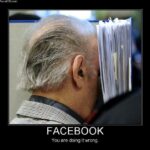 What to Expect in This Class:
What to Expect in This Class:
Fire. Tools. Medicines. Electricity. Automobiles. Cellphones. Computers. Over the course of human history, technological innovations have transformed the way in which we live our lives. In modern society, virtually no aspect of our day-to-day lives remain untouched by technology. In this fascinating and relevant class, analyze and discuss the myriad impacts technology has had on our lives. How has it changed the way we interact with friends and family? How has it changed the way we do business? How has it changed the way we think of ourselves? Has technology increased or decreased inequalities between people? How has it driven the economy and even aided wars? After taking this class, students are sure to understand and view technology in a new light.
Sample Past Syllabi From This Class:
Technology in Everyday Life (online) Syllabus Spring 2020 w/Sara Sutler-Cohen[PDF]
SOC 278: Global Sociology – 5 credits
How are people around the world deeply intertwined in a complex web of relationships? Explore a variety of political, cultural, and social changes that are transforming our world. Investigate globalization and its consequences. Using literature, art, film and popular culture, examine how countries are increasingly interconnected by flows of information, money, and people.
 What to Expect in This Class:
What to Expect in This Class:
Are you a part of the “millennial” generation? How will life be different for your generation than any others that have come before you? This class explores a variety of current political, economical, cultural, and social changes that are transforming our world. Investigate globalization and its consequences, drawing on new theoretical ideas from sociology, and other related fields. Some of the key questions examined are: What does it mean to be a global citizen in the 21st century? What exactly is globalization? How does it affect me anyway? Embark on a virtual tour around the world to explore these and other vital questions. Using literature, art, music, history, film and popular culture, we will examine how countries are increasingly interconnected by flows of information, money, and people.
After completing this course, you will be able to argue the pros and cons of globalization, explain possibilities for the future of globalization, and articulate the impact of globalization on your own life.
Last Updated May 5, 2022
